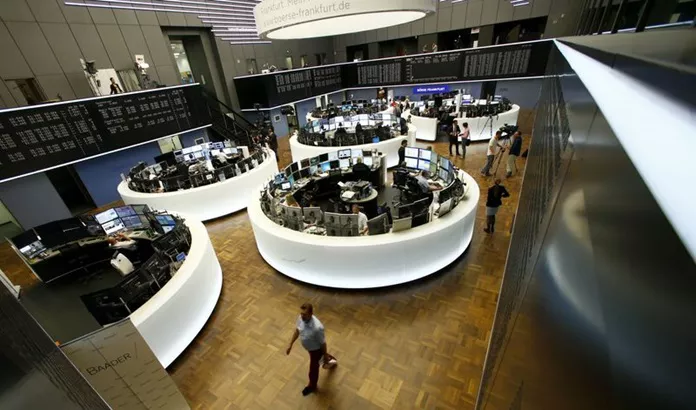Recent volatility in European stock and credit markets has eased, with investors noting efforts by the Trump administration to reduce global trade tensions, analysts at RBC Capital Markets reported.
RBC analysts, led by Peter Schaffrik, observed that the depreciation of the U.S. dollar had slowed, and the trend of U.S. investors shifting into European equities has stalled.
They believe that market expectations of economic damage due to Trump’s tariff policies are already priced in. The key question for investors now is the context in which the U.S. and global economy’s “hard” data, such as retail sales or GDP, weakens, the analysts explained.
“Hard data” refers to objective economic indicators, while “soft data” includes sentiment-based measures like consumer confidence and business outlook surveys.
According to RBC, markets have already priced in “some damage” to both the U.S. and global economies, as reflected in declines in “soft data” like purchasing managers’ indices. However, “hard data” has not yet shown significant weakness. For instance, Europe’s first-quarter GDP was stronger than expected, despite the threat of tariffs announced by President Trump on April 2.
At that White House event, Trump introduced new tariffs on several U.S. trading partners to bring back manufacturing jobs and boost government revenue. He later announced a 90-day pause on most of these duties, including those on the European Union, to allow more time for negotiations. Notably, China was excluded from this delay, facing tariffs of at least 145%, while Beijing retaliated with its own duties on U.S. imports, escalating tensions between the two largest economies.
In a positive development, Trump and U.K. Prime Minister Keir Starmer announced a new trade deal on Thursday, raising hopes for future agreements with other nations. Meanwhile, talks between U.S. and Chinese officials are scheduled to take place in Switzerland this weekend, with Trump suggesting that tariffs on China may eventually be reduced.
Economists have warned that the tariffs could drive up prices, hurt the labor market, and slow growth. Many businesses have also expressed concern over the uncertainty surrounding the White House’s trade policies, making it difficult to plan for future investments.
U.S. GDP contracted in the first quarter, largely due to a surge in imports as businesses rushed to secure orders before the tariffs were enforced. Additionally, consumer sentiment has sharply declined, with households concerned that the tariffs could lead to inflation.
Despite these challenges, spending and labor market indicators have remained resilient. RBC analysts concluded that while the current period of calm is promising, it remains uncertain whether this is a temporary lull or a more lasting trend. They lean toward the view that the markets are experiencing the “calm after the storm.”
In light of these developments, RBC analysts now have increased confidence in positions that profit from a steepening yield curve, which would benefit from the widening gap between short- and long-term bond yields. They also see potential for a weaker U.S. dollar in the next 12 to 18 months, which could be positive for the euro.
Related topics:


